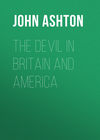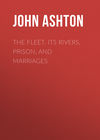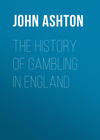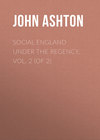Kitabı oku: «The Dawn of the XIXth Century in England», sayfa 18
CHAPTER XXXVI
Hunting then, and now – Hunting near the Metropolis – The Epping Hunt – Fishing – Shooting then, and now – Guns – Methods of proving gun barrels – Big charges – Introduction of the Percussion Cap – Size of bags – Colonel Thornton’s bet.
OF COURSE there was Hunting, both Fox and Stag, but it was not carried out on the same principles then as now. A man, then, kept a pack of hounds for his own amusement, that of his friends, and the neighbourhood generally. A meet, then, was a great social gathering of neighbours, at which, for the time, all were on a courteous equality, engendered by similarity of taste, and cemented by means of the Master, who, at some great expense, kept the pack for others’ use. Now, “the old order changes, yielding place to new;” the probability is that it is a subscription pack – with the subscriptions not too well paid, and the Master frequently changing, owing to his quarrels with his masters, the subscribers, who carp at his doings, and try to dictate their own views. The railway brings down the “London Contingent” – sporting stockbrokers, solicitors, tailors, and publicans – in fact, all who can scrape together the necessary money to hire the “hunter,” and pay its fare to the nearest station to the meet. These people have no sympathy with the farmers, no relations with the county, spend no money, because they return to London at night, care nought for the damage they do, which, probably, is done in ignorance; and it is no wonder that, nowadays, hunting is not so popular among tenant farmers as it might be – and it is pretty safe to prophesy, that in many districts, before many more years, it will be reckoned as a thing of the past.
Then, however, there was never heard a whisper of the scarcity of foxes. A fox found poisoned, or shot, would have been considered as an indelible disgrace to the district. The word vulpecide was not coined, because the crime had not been committed. No farmer ever sent in a claim to the Hunt, and only old women, cottagers, ever wanted compensation for the gander, or the two or three hens that they had lost; as to warning off land, it had never been dreamt of, much less practised.
In other ways, too, hunting was different – both horses, and hounds were heavier, and slower then; it was not the pace of the run that was discussed at night, but its length, and the behaviour of both hounds, and horses. Fox hunting began much earlier in the morning than it does now; and a good solid meal of cold meat, washed down with a tankard of home brewed, was vastly superior to a modern “lawn meet” breakfast, with its wines and liqueurs, to “steady the nerves,” to say nothing of the flask of “jumping powder.” Sport, too, was found much nearer the Metropolis then than now. Morning Post, August 14, 1805: “To Sportsmen and others. – A Deputation to be granted of the very extensive Manors of Hornsey and Finchley, in the County of Middlesex, with the liberty of Hunting and Shooting over, and upon, the said Manors, abounding with game,” &c.
The Epping Hunt, too, where the citizens53 annually met on Easter Monday, to vindicate their right to hunt in the Forest, was not the farce it afterwards became. Most men, then, were accustomed to horseback, and could manage to stick on somehow.
Fishing and shooting were, of course, as popular as now. Of the former we have had little to learn since Isaac Walton’s time, and the illustration shows us that the “Contemplative Man,” in the early part of this century, knew how to combine his “Recreation” with the charms of female society.
Shooting, like hunting, was a totally different thing, in the first ten years of the century, to what it is now. There were no battues, no hot, and elaborate, luncheons, no being posted in “warm corners,” no army of beaters, no breech-loaders, and two attendants to load for you, and, at the end of a day’s sport, no waggon-loads of slain to be sent off to market to help pay, in some part, the expenses of breeding, and keeping, such a head of game. Then, a man went out, preferably with a friend or two, soon after an early breakfast, accompanied by Don and Ponto, who were his constant companions in his walks, and whose education he had personally superintended; to watch their intelligent movements was in itself one of the pleasures of the day. When a covey rose, not a shot was wasted, if possible, for, by the time the gun was reloaded, the birds would be far off. A bit of bread and cheese, as luncheon, at the nearest farmhouse, or the village pub.; if the former, a brace of birds, or a hare left, with a kindly message. Enough game to carry home, without being tired, plenty for the larder, and some for friends; then dinner, some punch – and Betty would come with the chamber candle and warming-pan, to find the party asleep and quite ready for bed.
The Guns, with which our grandfathers shot, were vastly inferior to our modern breechloader; the workmanship was good, but the flint-lock, with its tardy firing, and the very weak powder then in use, did not render the “birding gun” a very efficient weapon.
Thornhill, who wrote the Shooting Directory in 1804, is as great an authority on the subject of guns as any of his contemporaries; and he had quite sense enough to see that the old-fashioned long barrel of four feet, or more, carried no further than one of three feet, and he counselled the musket length of two feet ten inches, as the standard length for fowling-piece barrels, and preferred one that carried its shot close, to one that scattered. The method of proving “that a barrel will not burst, was to get a ball to fit the exact bore, and put the exact weight of the ball in powder, with which load, and fire it off by a train; if it does not burst, you need be under no apprehension. This is called Tower-proof; or put in double the quantity of powder and shot.”
He recommends as a proper charge for a fowling-piece of ordinary calibre, a drachm and a quarter, or a drachm and a half, of good powder, and an ounce, or an ounce and a quarter, of shot; and, when treating on the subject of recoil, he gives one or two anecdotes of overloading. “The overloading of the piece is the reason of the recoil; respecting sportsmen who are in the habit of overloading with shot, such are properly ridiculed in a treatise published some time since, entitled, ‘Cautions to Young Sportsmen,’ in which we find an advertisement levelled at some persons who were going to a Pigeon Shooting Match at Ballingbear-Warren House. It was as follows: ‘Take notice, that no person will be allowed to load with more than four ounces of shot.’ A gamekeeper to whom this author mentioned the story, told him he thought it a pretty fair allowance, and, on being told what charge and weight of shot he generally used, replied, he divided a pound into five charges… A friend of the gentleman who relates this story, seeing his keeper equipped for a pigeon match, had the curiosity to examine his charge, and, after trying it with his rammer, expressed his surprise at finding it rather less than usual. ‘Oh, sir,’ replied the keeper, ‘I have only put in the powder yet;’ and, on putting in the shot, the charge, altogether, was eleven fingers. The reason he assigned was ‘that he always liked to give his piece a belly full.’”
The Percussion Cap, which was destined to make such a revolution in small arms, was patented April 11, 1807, by the inventor, the Rev. A. J. Forsyth, of Belhelvie, Aberdeenshire. It soon came into use, for we find an advertisement in the Morning Post, December 23, 1808: “To Sportsmen. The Patent Gun-lock invented by Mr. Forsyth is to be had at No. 10, Piccadilly, near the Haymarket. Those who may be unacquainted with the excellence of this Invention are informed that the inflammation is produced without the assistance of flint, and is much more rapid than in the common way. The Lock is so constructed as to render it completely impervious to water, or damp of any kind, and may, in fact, be fired under water.”
Grouse, partridge, and other shooting, commenced on the same dates as now, and game certificates were as necessary then, as at the present time. Heavy bags were not the rule. Thornhill supplies us with his ideal of a luxurious sportsman of his time, with every appliance for slaughter, and game ad libitum. Compare his butcher’s bill with that of a modern battue. “A man of fortune, surrounded with gamekeepers (let us suppose the scene for the present in Norfolk), pointers, setters, &c., without number, Manton54 Guns, and all in compleat retinue, going out at, perhaps, twelve o’clock (the hour of indolent, and feather bed gunners), into the highest preserved covers in that County, where the game is so very tame, that twenty birds may be killed in a few hours; their servants with clean guns ready, and, if necessary, loaded by them; and probably, if the dog of one of these elegant sportsmen is admired, or gains credit, if his master is asked his name, he makes for answer ‘he really cannot tell you, but will ask his gamekeeper.’”
A large bag is spoken of by Daniel, in his Field Sports, where he says that in 1796, on Mr. Colquhoun’s manor at Wretham, in Norfolk, the Duke of Bedford, and six other gentlemen, killed eighty cock pheasants, and forty hares, besides some partridges, in one day.
Mr. Coke, of Holkham, kept up a wonderful head of game, so that his performances ought not to be looked upon in the light of phenomenal sportsmanship, because his victims were so plentifully to hand. As an instance, on October 7, 1797, upon his manor at Warham, and within a mile’s circumference, he bagged forty brace of partridges, in eight hours, at ninety-three shots; and, on the previous day, over the same ground, he killed twenty-two brace and a half, in three hours. In 1801, he killed, in five days, seven hundred and twenty-six partridges.
In January, 1803, Mr. Coke, Sir John Shelley, and Tom Sheridan went to Lord Cholmondeley’s place at Houghton, in Norfolk, and killed there, in one day, to their three guns only, fourteen and a half brace of hares, sixteen couples of rabbits, twenty-four brace of pheasants, thirteen brace of partridges, and sixteen couples of woodcock.
In the Morning Post of the 21st of January, 1801, we find: “Col. Thornton some time ago made a bet that he would kill 400 head of game at 400 shots, the result was, that, in the year 1800, he bagged 417 head of game (consisting of partridges, pheasants, hares, snipe, and woodcock) at 411 shots. Enumerated amongst these are a black wild duck, and a white pheasant cock, and at the last point he killed a brace of cock pheasants, one with each barrel; on the leg of the one last killed (an amazing fine bird) was found a ring, proving that he had been taken by Colonel Thornton when hawking, and turned out again in the year 1792.”
CHAPTER XXXVII
A Cockney’s account of the First of September – Pigeon shooting – Out-door games – Cricket – High stakes – Lord’s cricket ground – Trap and ball – Billiards – Life of Andrews the billiard player.
PASSING from recounting the feats of legitimate sportsmen, let us unbend, and indulge in a contemporary account of his cockney congener —Times, September 2, 1803:
“A Cockney’s Account of Yesterday, being The First of September
“Having sat up all night to be ready and fresh in the morning, four of us met at the Obelisk, in St. George’s Fields, from whence we proceeded with our dogs, arms, and ammunition, to Lambeth Marsh, where we expected to have great sport, but found nothing except a cat, which we all fired at; but being only four in number, and a cat having nine lives, we missed killing her, though, as we believe, she was severely wounded. In this discharge we broke a bell glass in a gardener’s ground, so, fearing that we might, on that account, be taken up for poachers, we made the best of our way to Tothill Fields; here we reloaded our pieces, and gave our dogs a piece of bread each, but the fox dog would not eat his. We then proceeded to look about for sport, when two Westminster boys claimed the place as their manor, and drove us out of it. We now beat all about Jenny’s Whim, and seeing something swimming across the water, which a waterman’s boy told us was a dab-chick, we all fired, but without success, but the terrier caught it, as it ran up the bank and it proved to be the largest rat we had ever seen.
“As we passed through the five Fields, Chelsea, we saw several pigeons, but they flew so fast that none of us could take aim.
“On the other side of Battersea Bridge, met two men driving geese. Offered them eighteenpence, which they accepted, for a shot at the flock, at twenty yards. Drew lots who should fire first; it fell to Billy Candlewick’s chance, who, from his father belonging many years ago to one of the regiments of City Militia, knew something of taking aim.
“The goose driver stepped the ground, and Billy took aim for above ten minutes, when, shutting both his eyes lest the pan might flash in his sight, he snapped, and missed fire. He took aim a second time, snapped and missed again. Borrowed Bob Tape’s scissars, and hammered the flint – snapped, and missed fire a third time – thought the Devil had got hold of the gun, examined her, found she was neither loaded nor primed. The goose driver refused to let Billy try again, so we gave him another sixpence, and he sold us a lame gander, which we placed at about six yards, and, taking a shot apiece at him, killed him, and put him in Ned Thimble’s cabbage net.
“Passed over Clapham Common, where we saw several parties, but would not interfere with their sport.
“In our way to Stockwell, Ned Simple fired at a pigeon, which was perched on the top of a tree, and shot a man’s hat and wig off, who stood underneath it. As we thought he might be killed, we set off as hard as we could run, but were pursued and overtaken by two gardeners, who insisted upon being paid two shillings for destroying a scarecrow. We paid the money very readily, and kept our counsel.
“When we came in sight of the Swan, at Stockwell, we all ran as hard as we could to see who should get in first as we had settled to breakfast there. Unfortunately, our gun being cock’d, I made a stumble, and the trigger being touched by something, off went the piece, and lodged the contents in the body of a sucking pig that was crossing the road. The squeaking of the poor little animal roused the maternal affections of the sow, and set the fox dog, the terrier, the Newfoundland bitch, and the mastiff, a barking. The noise of the sow, the pig, and the dog, with the report of the gun, brought the people of the house, and, indeed, of the neighbourhood; and, being threatened by one, and laughed at by another, we thought it best to buy the pig at four shillings, which we did, and put it into Bob Tape’s game bag, which, by the bye, was nothing but half a bolster tick.
“We now beat every bush with the muzzle of our guns, set the dogs on the pigs, and found but one chaffinch, which was rather wild, not letting us come within eight yards, so that we could not make sure of our bird. We hunted him from spray to spray for above an hour, without being able to get in a parallel line, so as to take sure aim when, at last, he was killed by a little boy, who knocked him down with a stone. Bought him, and put him into the net with the goose.
“Hunted a weazle for above an hour, and lost him. The terrier was remarkably staunch.
“Crossing a field near Camberwell, we thought we saw a covey of partridges at the side of a ditch; so we all made up to them with our guns cock’d, tying the dogs to our legs, that they might not run in, and spring the game.
“What we thought to be a covey of partridges, proved to be a gang of gypsies, who were squatted under the hedge, peeling turnips and paring potatoes for dinner. It was the mercy of God we did not fire on them, as all our pieces were up to our shoulders, and we had but one eye open, apiece, when that, which we took to be the old cock, rose up, and said in a loud voice, ‘What the devil are ye about?’
“After much difficulties, and but little sport, got, by the direction of the gypsies, into the Greenwich road, where, being rather fatigued, we stopped at the Halfway house, until a coach came by, when, mounting the roof, and the box, we were conveyed near Blackheath, to our unspeakable joy.
“Never saw the Heath before – amazed at the number of furze bushes, and the wide extent there is for game. Had an excellent chase after a jackass, when the mastiff tore his leg. Kept close together for fear of losing each other.
“Got down near a large round house, shot at a flock of sparrows, and killed one, which we think is a cock, his head being rather black.
“Saw several brother sportsmen out, who had killed nothing but a hedge hog and a tame jack daw, which belonged to the public house at New Cross Turnpike.
“Got up to the main road, fired at a yellow hammer, and frightened the horses in the Dover stage. The guard threatened to shoot us, and we took to our heels.
“Saw some black game flying very high. They looked for all the world like crows.
“The terrier came to a point at a thick bunch of fern. We were now sure this must be a covey of partridges, and we prepared accordingly. The mastiff ran in, and brought out one of the young ones. It proved to be a nest of grass mice: took every one, and put them into the bolster. Grass mice were better than nothing.
“Much fatigued, and agreed to shoot all the way home, fired off our guns at the foot of Greenwich Hill, and were laughed at by the inhabitants – loaded them again, and fired at a sheet of paper for half an hour without putting a grain in it.
“We went into a cow-house, near Bermondsey Spa, to get some milk for the dogs, and, laying down upon a heap of straw, we all fell fast asleep. We were awakened by the entrance of a cow and her calf, when we found we had been robbed of our dogs and our guns.
“We went into a public house to console ourselves for our loss, where we stayed till it was dark, that we might not be seen returning in such an unsportsmanlike manner.
“Agreed on the way what stories we should tell about the day’s amusement and success: parted at the Monument, and went to our respective homes.”
There was evidently the same tender-hearted sentiment then, as now, with regard to the “tournament of doves” – see the Morning Post, November 19, 1810: “The expert marksmen in pidgeon killing matches are very properly denominated slaughtermen; four of these humane gentlemen shot no less than thirty-six, for mere amusement, the other day on Finchley Common.”
Perhaps the principal out-door game (for football, as a game, was not yet organized, and hockey and golf had but local fame and habitations) was Cricket; and even this friendly sport, and generous rivalry, as we know it, was then contaminated by being played for money. Two or three examples, in one year, will be sufficient to show the motive of the game.
Morning Herald, July 1, 1802: “Cricket. Tuesday was played a grand match of Cricket on Hampstead Heath, between eleven Gentlemen of the Mary le bone Club, and nine Gentlemen of Hampstead and Highgate, with two men given, for 500 guineas, which was won by the latter, by 112 runs.”
Ibid., July 15, 1802: “Cricket. Tuesday was played a grand match of Cricket, at Chigwell, Essex, between eleven Gentlemen of Chigwell and eleven Gentlemen of the Mile End Club, for 500 guineas, which was won by the latter by 23 runs. Even betting at starting.
“Yesterday a grand match of Cricket was played at Camberwell, between eleven Gentlemen of Camberwell and Peckham, and eleven Gentlemen of Clapham, for 500 guineas, which was won by the former by three wickets.”
Ibid., September 3, 1802: “Cricket. Monday last, and two following days, was played a grand match of Cricket, on Ripley Green, Surrey, between eleven Gentlemen of All England, and twenty-two Gentlemen of Surrey, for 1,000 guineas, which was won by the former in one in (? innings), and twenty-five runs.”
Lord, whose Cricket-ground was afterwards bought by the M.C.C., and which still goes by his name, then had the ground now covered by Harewood and Dorset Squares: the date of removal thence to the present ground is noted in an advertisement in the Morning Post, April 21, 1809: “Cricket Ground. Lord begs to inform the Noblemen and Gentlemen, lovers of Cricket, that he has enclosed and levelled a large piece of Ground, at the top of Lisson Grove, a short distance from his old Ground, which, for size and beauty of situation cannot be excelled, which will be ready for playing on by the beginning of May, to be known by the name of Lord’s Saint John’s Wood Cricket Ground.”
Then also was played a game, now practically defunct in this country, but vigorous enough in America, where it is known as Base-ball. Morning Herald, September 22, 1802: “On Monday last was finished, at Haverstock Hill, near Hampstead, a grand Match of Trap and Ball, between twenty-five Gentlemen of the Law, and five of the Gospel, which was won by the former.”
Billiards was an old indoor game, which had somewhat fallen into abeyance, but was reviving, for we read, in the Morning Post, September 28, 1809: “Billiards are becoming very fashionable; it is an amusement of a gentlemanly cast – giving at once activity to the limbs, and grace to the person. A match was played yesterday at Kidman’s.”
From this illustration, which is taken from a little book entitled, “New Instructions for Playing in all its Varieties, the Game of Billiards,” &c., 1801, there seems to have been but little difference either in the play, or in the furniture of the room, between the past and the present times. They must have played a somewhat heavy, and dead game, though, for neither india-rubber cushions, nor slate tables, were known. The rules for the game are similar to our own.
This little book gives a curious biography, which I am tempted, as it is short, to copy.
“Mr. Andrews was born to an easy independent fortune, but, commencing life at a time that he was incapable of judging of the world, or of himself, was led away by a single passion; for he was not actuated by any other. He devoted himself entirely to the blind goddess, and worshipped her incessantly, under the form of two ivory balls. He was remarkably thin, not very tall, though above the middle size: his face was a perfect vacuum with respect to every possible idea except Billiards. So infatuated was he in pursuing this game, to attain the summit of excellence at it, that he sacrificed days, nights, weeks, months, and years to it.
“At length he arrived at such a degree of perfection, as well in the theoretical, as in the practical part of the game, that there was no player in Europe could equal him, except one, who was the celebrated Abraham Carter, who kept the tables at the corner of the Piazzas, Russel Street, Covent Garden. Mr. Andrews was the most devoted adept of this game that ever nature produced; he seemed but to vegetate in a Billiard Room, and, indeed, he did little more in any other place. He was a perfect Billiard Valetudinarian, in the most rigid significance of the expression. He ate, drank, slept, walked, nay, talked but to promote the system of the balls. His regimen was tea, and toast and butter, for breakfast, for dinner, and for supper.
“It might reasonably be imagined, that so regular a professor would obtain all the advantages that could result from the science. He won considerable sums, but knew not the value of money; and when playing for only five or ten pounds, he took no pains, but seemed perfectly indifferent about winning or losing. There was a latent finesse in this, but it did not operate to his advantage: he was laying by for bets, but as they were seldom offered, the strength of his play being very well known, he often lost by repeated small sums, very considerable ones.
“It is generally believed, however, that he has played for more money at billiards than any other person ever did. The following is a remarkable circumstance: he, one night, won of Col. W – e upwards of £1,000, and the Colonel appointed to meet him the next day to go with him to the City, to transfer Stock to him for the amount of the sum lost. Being in a hackney coach, they tossed up who should pay for it. Andrews lost, and upon this small beginning he was excited to continue, till he had lost the whole sum he had won the night before at billiards. When the coachman stopped to get down, he was ordered to get up again, and drive them back, as they had no occasion to get out.
“By these pursuits he lost very large sums which he had won at billiards; and, in a few years, hazard, and other games of chance, stripped him of every shilling he could command. He had still left a small annuity which he endeavoured to dispose of, but it was so securely settled upon himself that he could not sell it; otherwise it is probable that it would soon have been transferred at the gaming table. He very lately lived in a retired manner in Kent, where he declared to an intimate old acquaintance that he never knew contentment when he was rolling in money; but, since he was obliged to live upon a scanty pittance, he thought himself one of the happiest men in the universe.”









